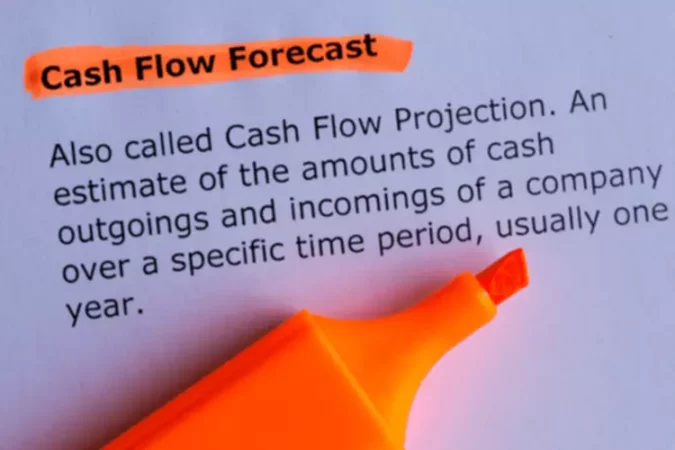
Religious, educational, scientific, charitable, and other tax-exempt organizations are exempt from FUTA. Services provided by state or municipal governments are also exempt. The Ascent is a Motley Fool service that rates and reviews essential products for your everyday money matters. We’re firm believers in the Golden Rule, which is why editorial opinions are ours alone and have not been previously reviewed, approved, or endorsed by included advertisers. The Ascent, a Motley Fool service, does not cover all offers on the market.
What is your current financial priority?
The collected taxes are used by the federal government to fund unemployment insurance programs. On the other hand, UI provides assistance to individuals who have lost their job through no fault of their own. It pays a portion of an individual’s income while they are searching for new employment.
Ask Any Financial Question

We may earn a commission when you click on a link or make a purchase through the links on our site. All of our content is based on objective analysis, and the opinions are our own. When you submit your Form 940, you can include payment by completing Form 940-V, known as a Payment Voucher. Depending on the laws of that state, your state’s wage base can change.
About Paychex
This amount is deducted from the amount of employee federal unemployment taxes owed. No, unlike other payroll taxes, FUTA is not withheld from employee’s paychecks. Instead, employers are responsible for calculating and paying the FUTA tax on their own. This is because the goal of FUTA is to raise funds to provide financial assistance to people who have lost their jobs. The Federal Unemployment Tax Act, known as FUTA, refers to a payroll tax that employers pay on an annual or quarterly basis toward unemployment compensation for employees who have lost their jobs.

- Find out how to file, how to calculate your FUTA tax, and find answers to commonly asked questions.
- It means that employers will see an additional $42 per employee that they have to pay at the end of the year.
- The Ascent, a Motley Fool service, does not cover all offers on the market.
- Employers typically have a credit of 5.4% that they need to account for.
If a company pays wages of more than $1,500 to employees in any calendar quarter during the year, they are subject to FUTA. In addition, if one or more employees worked part of a day in 20 or more different weeks during the year, the company they work for is subject to FUTA. While FUTA is used to fund unemployment benefits, Federal Insurance Contribution Act (FICA) taxes are different in several ways. The tax is split evenly between the two, though self-employed individuals are usually responsible for both portions. An employer that qualifies for the highest credit will have a net tax rate of 0.6% (calculated as 6% minus 5.4%). Thus, the minimum amount an employer can pay in FUTA tax is $42 per employee.
FUTA vs SUTA vs FICA
The Social Security Act of 1935 had administered unemployment benefits until FUTA was enacted in 1939. No, similarly to household employees, self-employed individuals are exempt from FUTA taxes according to the regulations. For example, if an employee earns $50,000, the employer’s FICA tax is $3,825 (6.2% of $50,000 + 1.45% of $50,000). The employee pays the same $3,825, which is withheld from their wages. If you’re a small business owner, figuring out what FUTA is and calculating payroll obligations are likely the last things you want to deal with.
If an employer is covered by any state unemployment insurance laws, they may also be considered exempt from FUTA. Furthermore, if an employer pays wages totaling less than $1,500 per quarter for all quarters of the previous two tax years, then they may also not be required to pay FUTA. As noted above, employers can take a tax credit of up to 5.4% of taxable income if they pay state unemployment taxes in full and on time.
These business credit cards that offer a convenient and efficient way to separate personal and business expenses, simplifying accounting and tax reporting. The FUTA rate for 2023 is 6.0% of the first $7,000 in wages for all employees, or approximately $420 per employee (assuming every employee makes at least $7,000 per year). Form 940 must be filed by January 31 of the year following the year to which it relates (e.g., January 31, 2024, for 2023).
Before we calculate FUTA tax, let’s identify the organizations and people whose wages are subject to it. Additionally, business cards can provide valuable perks such as rewards points, cashback, and expense tracking tools, enhancing financial management and the potential to help save money in the long run. If you aren’t sure how to calculate, file, or meet your FUTA obligations, a tax professional can help. Though uncommon, this scenario is currently playing out in some states, resulting in higher payroll costs for employers in California and New York.
Luckily, the FUTA tax only comes out to about $42 per employee (except for California and New York, which are $84 per employee). This might not sound like a lot, but for a large company with many employees, it can get expensive. If all of this payroll lingo is making you feel a little dizzy, don’t worry, we’ve got you covered. Because there’s so much to keep track of, we created a glossary with many common terms and payroll acronyms you’re bound to come across as a small business owner. You’ll also know your FUTA from your FICA and SUTA, so payroll will feel a lot less like alphabet soup!
FUTA taxes often come to just 0.6% of each employee’s annual wages, but don’t ignore them. Keep your small business bookkeeping sharp so you never miss a payment. If you have only a few full-time employees or many part-time employees, you might not collect $500 in FUTA taxes in one year. When that happens, you pay whatever you’ve collected by January 31 of the next year. Since the tax is limited to the first $7,000 of employee wages, these taxes usually go away in the first few months of the year for full-time employees. FUTA joined the Social Security Act of 1935 to create a suite of economic security programs that buoy individuals and the U.S. economy during hard times.
Any branch, subsidiary, or company that is completely owned by the tribe is exempt from this requirement. The FUTA tax liability is based on $17,600 of employee earnings ($4,900 + $5,700 + $7,000). Employee 3 has $37,100 in eligible FUTA wages, but FUTA applies only to the first $7,000 of each employee’s income. FUTA withholding refers to the contributions employers make to the Federal Unemployment Tax Act (FUTA). The purpose of these taxes is to provide a safety net for eligible unemployed individuals in times when the economy is struggling or when employees become unemployed for reasons outside of their control. The short answer is no, you’re not on the hook to pay FUTA if you’re self-employed.
Use Form 940 to report your annual Federal Unemployment Tax Act (FUTA) tax. Together with state unemployment tax systems, the FUTA tax provides funds for paying unemployment compensation to workers who have lost their jobs. The 5.4% tax credit is reduced if the business’s state or territory fails to repay the federal government for money borrowed to pay unemployment benefits. In 2019, the Virgin Islands received the only reduction of this kind. However, you may receive a credit for timely payment of state unemployment tax of 5.4%. Applying this rate to the first $7,000 of wages for each employee results in a tax of up to $42 per employee.
Offer health, dental, vision and more to recruit & retain employees. Your equation will differ if you have one or more employees who make less than $7,000.
For example, say you run a company with 20 employees and each employee earns $50,000 per year. Note that FUTA tax does not apply to household and agricultural employees. FUTA can be reported via Form 940 electronically using the IRS’ electronic filing platform. Taxpayers wanting to mail in a paper form will have varying mailing addresses based on the state they are in. Julia Kagan is a financial/consumer journalist and former senior editor, personal finance, of Investopedia. Take self-paced courses to master the fundamentals of finance and connect with like-minded individuals.
If you do your own payroll and need to report these taxes yourself, have a record of your business’s payroll in front of you. Form 940 has you enter information about the state unemployment taxes paid to show that you qualify for the 5.4% tax credit. As an employer, you also pay state unemployment tax (SUTA), and in Alaska, New Jersey, and Pennsylvania, employees chip in, too. Often, when your business pays state unemployment tax, your FUTA tax rate is reduced. The Federal Unemployment Tax Act created a program to help states pay for unemployment benefits for workers who have been terminated (other than for gross misconduct).

